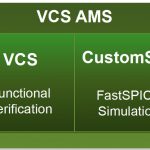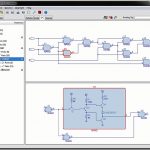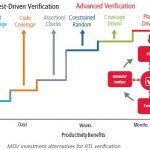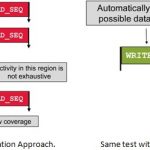In the semiconductor design industry, most of the designs are created and optimized at the RTL level, mainly through home grown scripts or manual methods. As there can be several iterations in optimizing the hierarchy for physical implementation, it’s too late to do the hierarchical optimizations after reaching the floor plan… Read More
Tag: systemverilog
Vlang – Opportunities Galore for Productivity & Performance
Yes, verification technologies are open to innovation for improved productivity and performance in the face of ever growing SoC/IP design sizes and complexities. There is not much scope left in processor speed to improve, other than multi-core processors in servers which again need software properly architected to be thread-able… Read More
Analog Model Equivalence Checking Accelerates SoC Verification
In the race to reduce verification time for ever growing sizes of SoCs, various techniques are being adopted at different levels in the design chain, functional verification being of utmost priority. In an analog-digital mixed design, which is the case with most of the SoCs, the Spice simulation of analog components is the limiting… Read More
Accelerating SoC Verification Through HLS
Once upon a time there was a struggle for verification completion of semiconductor designs at gate level. Today, beyond imagination, there is a struggle to verify a design with billions of gates at the RTL level which may never complete. The designs are large SoCs with complex architectures and several constraints of area, performance,… Read More
A Brief History of Functional Verification
Usually these brief history pieces are totally written by the SemiWiki blogger whose name is at the top. Often me since that was how I prototyped book chapters (buy). Well, OK, I did actually write this but it is completely cribbed from a presentation earlier this week by Wally Rhines who gave a sort of keynote at the announcement of… Read More
AMS Verification and Regression Testing of SoC Designs
Digital verification engineers on SoC designs have adopted many techniques to help ensure first silicon success: using compiled simulators, constrained random test, simulation farms, SystemVerilog methodology, and self-checking testbenches. AMS verification has tended to be ad-hoc or sharply divided into separate analog… Read More
Mark your Date for Semiconductor Design Vision
A very popular acronym is ‘WYSIWYG’ – What You See Is What You Get! This is very true and is important to visualize things to make it better in various aspects such as aesthetics, compactness, organization, structure, understandable for correction and so on; the most important, in case of semiconductor design, is being able to identify… Read More
Effective Verification Coverage through UVM & MDV
In the current semiconductor design landscape, the design size and complexity of SoCs has grown to large extent with stable tools and technologies that can take care of integrating several IPs together. With that mammoth growth in designs, verification flows are evolving continuously to tackle the verification challenges … Read More
SoC Verification Closure Pushes New Paradigms
In the current decade of SoCs, semiconductor design size and complexity has grown by unprecedented scale in terms of gate density, number of IPs, memory blocks, analog and digital content and so on; and yet expected to increase further by many folds. Given that level of design, it’s imperative that SoC verification challenge has… Read More
How Do You Verify a NoC?
Networks-on-chip (NoCs) are very configurable, arguably the most configurable piece of IP that you can put on a chip. The only thing that comes close are highly configurable extensible VLIW processors such as those from Tensilica (Cadence), ARC (Synopsys) and CEVA but Sonics would argue their NoCs are even more flexible. But … Read More





